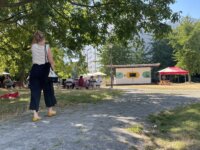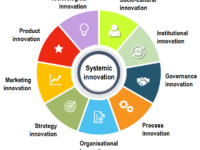The eBox Citizen is a digital mailbox in which Belgian citizens can receive official documents from Belgian public instances at every level. Given the complex nature of Belgium’s federal state structure, the deployment of such a centralized eBox has proven to be a crucial step in the continuous digitalization of public services in Belgium. It got an enormous boost throughout the Covid-19 pandemic, as the quickest way for citizens to receive an invitation for their vaccination was via their…
Country: Belgium
Becoming a circular economy entails a deep transformation of industry, consumer behavior and policy. Traditional innovation funding focuses on technology, punctual projects and (single) companies, which alone fail to bring the required systemic change. Hence, the Flemish government launches the subsidy programme Living Labs Circular Economy for projects tackling complex challenges, with a high ambition level, in co-creation with very diverse stakeholders and employing system innovation methods.
Connectoo Training aims to reduce the digital divide in Belgium by training public officials to better take into account citizens on the digital fringe. Accessible free of charge and 100% online, connectoo trains and certifies public agents in the challenges of digital inclusion and in the reflexes to adopt to help the most vulnerable citizens with online administrative procedures. Together, we are reconnecting digital public services to citizens. In 2022, the digital divide remains more than…
Case Study
Collections of Ghent – Connecting citizens through digitised cultural heritage reuse and…

Collections of Ghent is an EU-funded innovation project designed to tackle the urban challenge: How to digitise cultural heritage beyond the cultural institutions, on a city level or higher. And how to use it to improve social cohesion and inclusion within a neighbourhood. It is both a digital transformation project, and a social innovation project where we research how digital cultural heritage can be used in co-creative and participative way.
In order to bridge the gap between representatives and represented, the Brussels Parliament intends to open its doors to all the inhabitants of the Brussels-Capital Region. It has therefore decided to include in its rules of procedure a system of citizen participation: the Deliberative Committees (commissions délibératives). These committees, made up of 15 elected officials and 45 citizens chosen by lot, are responsible for drawing up recommendations on a given topic, which the Parliament must…
Aviation is regulated in a vast set of laws and agreements, on an international and national level and is to be respected by aviators of all sizes; from big national airports, till little children playing with drones. All these different rules and moreover national differences lead to an incredibly complex system to implement. The Belgian Federal Public Service Mobility has developed a system that translates these legal requirements into a single online aircraft registration platform.
Democratic Society have developed a prototype for a Democratic Climate Model to show the impact of putting citizen at the centre of local climate action. It responds to the gap in pan-European efforts to democratise climate action, providing terminology and models to shift cities from a solely technocratic to a democratic approach to climate resilience. It is evolving ‘climate democracy’ discourse with funders, public sector and civil society by scaling local initiatives to European…
European Border regions face obstacles in diverse domains, hampering cross-border interactions and development. b-solutions provides an innovative way to support border regions in identifying the root causes of obstacles and devising solutions pathways in two ways:
i) how public support is provided: a legal expert working directly with the beneficiary on a obstacle (i.e. no red tape+cost effectiveness)
ii) on each different solutions (legal revision proposals; agreements; revised procedures)

